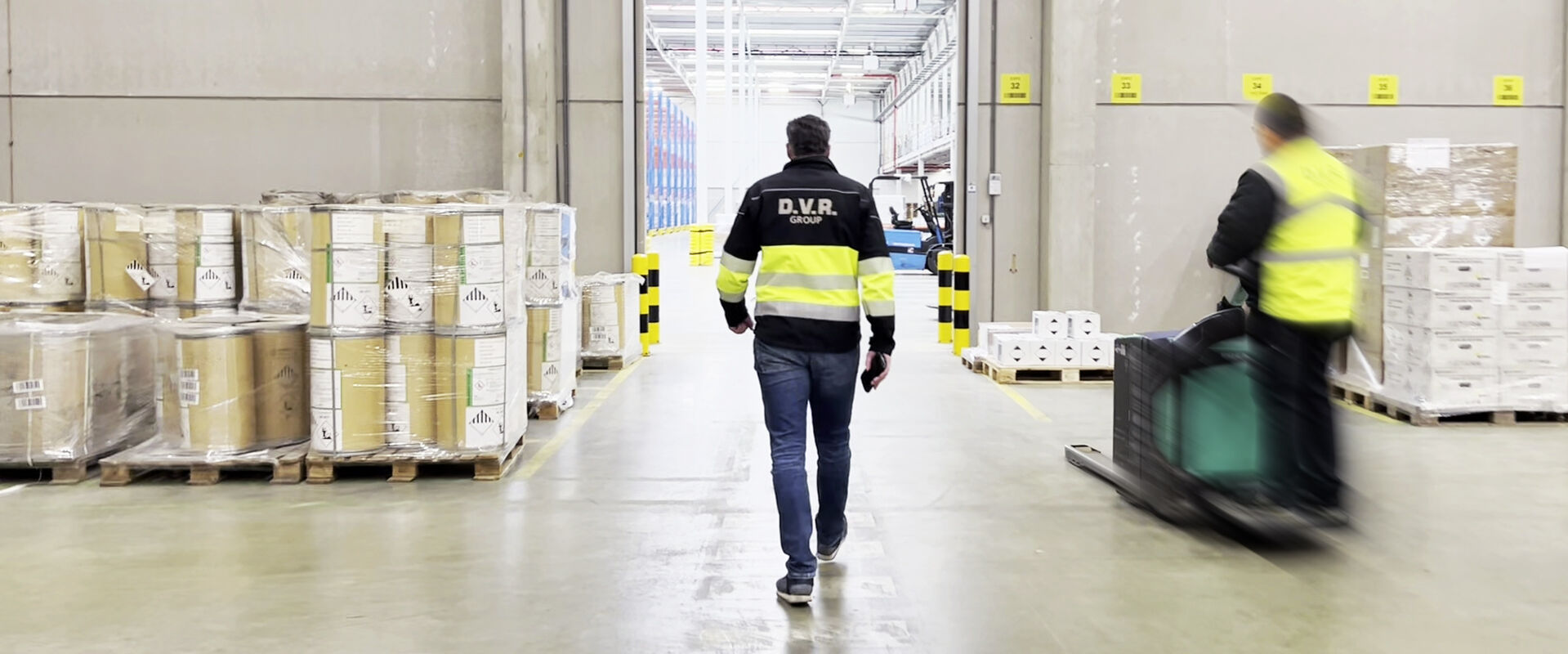What advantages can the Rotterdam based warehousing facilities of the Karl Gross Group offer for importing companies?
An interview with John Touw and Tommy Chun
When it comes to the storage and handling of goods, various, mostly economic and goods-dependent aspects often play a central role in the selection of the warehouse service provider.
With the Dutch DVR Group, settled in Rotterdam, a warehousing specialist is part of the Karl Gross Group.
We spoke to John Touw, Director of Rotterdam Karl Gross International B.V., and Tommy Chun, Director of Foreign Partners & Relations, who was our first "link" to DVR after Karl Gross’ acquisition of the DVR Group.
Mr. Touw, Mr. Chun – thank you very much for taking the time to talk to us. In your opinion, what are the biggest advantages of DVR Group storage facilities in Rotterdam when we talk about imported goods or importing companies?
John Touw:
First of all, I think one should answer the question: Why choose Rotterdam as a warehousing location?!
For importing companies, the possibility of fiscal representation, which we as Karl Gross have in the Netherlands, is a significant advantage.
Companies that import goods from non-EU countries can defer import VAT in the Netherlands through the Fiscal Representation. This has advantages for the liquidity of our customers, as they do not have to pay import VAT immediately.
And by the way: For goods that do not yet have a recipient or importer in the EU, it is possible to store goods duty-free and untaxed at DVR by using their "bonded storage" service.
Tommy Chun:
I think the storage facilities are beneficially located. That also offers a number of advantages.
Rotterdam holds Europe’s largest container port. So it is one of THE central logistics hubs in Europe. And then, within Rotterdam itself the DVR warehouses are really conveniently located. The driving distance from the large container terminals on the Maasvlakte to the warehouses at Wolgaweg is only a few minutes. This is a big plus, because it saves an enormous amount of time and thus also costs in port-to-warehouse logistics.
Also, the buildings are located in close proximity to the Dutch A15 – one of the country's main highways and part of important European transport corridors.
Overall, looking at road connection and road transport we can efficiently receive our customers' goods and also efficiently distribute them.
That sounds really beneficial. Can you tell us a little more about how the warehouses’ geography could optimize customers' business processes?
John Touw:
Of course. For example, through the structural set-up. There is a specially approved dangerous goods warehouse right adjacent to the warehouse for general cargo.
For companies that have both dangerous and harmless goods to store, this is extremely convenient. In the end, they can store both types of goods in one central location and have these goods loaded together if necessary.
This brings additional flexibility and cost savings, because there is only one loading or unloading address and not, as is often the case, two different ones, which may also be quite far away from each other.
Safety aspects and standards play an important role, especially in the storage of dangerous goods. What about this topic?
Tommy Chun:
Safety is our top priority. The dangerous goods warehouse has high safety standards. These include, for example, a CO2 fire suppression system and 24/7 monitoring systems such as thermal imaging cameras and gas and heat detectors. At the same time, there are special building measures in place which separate the dangerous goods facility from the warehouse for general cargo. We also have an experienced team on site who are regularly trained to ensure that all regulations are strictly followed.
John Touw:
Safety comes first, of course, especially in the dangerous goods sector. For example, the DG goods warehouse has 6 separate bunkers, which is an advantage over many other facilities in terms of safety.
Also, both storage facilities were commissioned in 2019 only. They are state-of-the-art in terms of security. So, our dangerous goods warehouse customers can be comparatively relaxed when it comes to the planned tightening of rules for the storage of dangerous goods under PGS-37-2 standard.
The Karl Gross website states that warehousing services are offered "as part of our international logistics solutions" of the group of companies. What does this mean and why can it be beneficial for customers?
John Touw:
In the end, this means putting everything in one hand. That has the advantage that our customers simply have less effort in handling their shipments along the entire transport chain.
An example we often experience in daily operations: A company is based in China and in, say, Germany, and imports its goods manufactured in China for distribution within Europe.
Then Karl Gross' colleagues in China can take care of picking up the cargo, of organizing the transport to the port of shipment, handling export customs clearance and loading the goods onto the seagoing vessel. Here in Europe, we take over. We organize the receipt of the containers in the port of discharge, the transfer to the warehouse, the storage, warehousing services such as picking and packing and finally the customs clearance and delivery of the goods to the final consignee.
It's a rather long logistics chain with many interfaces. Putting everything in one hand means that the customer really has only one contact person for the various sections of the logistics chain. And that means reduced communication and coordination effort on the part of the customer, because we have all the data – and we have it at an early stage, too. This minimizes the possibility of errors in transmitting of shipping and goods data, which can lead to additional costs. The bottom line is that too many cooks often spoil the broth.
Makes sense. The topic of picking and packing just came up – a broad term. Are there any practical examples of how the topic is dealt with at DVR?
Tommy Chun:
When it comes to order picking, our colleagues at DVR really respond to customer requirements and offer tailor-made solutions, whether it's simple order picking or complex value-added services, such as repacking, labeling or putting together sets. This flexibility is an important advantage for many of our customers, because we can adapt exactly to their needs.
It is quite common for a packing order to say for example: "3 boxes of article a), 4 of article b), 1 of article c) 15 of article d), 3 individual pieces of product xyz" and so on.
And that's where the factor of the facilities for general cargo and dangerous goods located directly next to each other pays off for many customers. Both types of goods can be picked and packed together for delivery orders.
In practice, this actually happens frequently, because one of the industry and product focuses of our DVR colleagues is the field of "renewable energies" - more precisely the field of solar energy. Here, inverters, which are general cargo, and lithium batteries, which are classified as dangerous goods, are usually delivered together in one order.
I have heard that the IT infrastructure is also very modern. Can you tell us more about that?
Tommy Chun:
Yes, that's true. One aspect that our customers appreciate very much is indeed the warehouses' modern IT infrastructure. The system supports not only barcode scanning, but also QR code scanning, which provides additional flexibility in our customers’ labelling of goods and in our warehouse management. Our technological set-up allows us, and ultimately also our customers, to record and track stocks quickly and precisely via an individual EDI interface.
OK. That sounds transparent. Thanks for the explanations.
John Touw:
When I talk to customers about DVR's storage facilities, I can say that in the end it is a combination of an excellent location, flexible warehouse structure and modern IT solutions that makes DVR's storage and warehousing services a really advantageous choice – especially when coupled with fiscal representation by Karl Gross.
But even if we have told you a lot of positive things about DVR’s warehousing facilities and about the advantages of "everything from a single source", it is still important to me to say that we as Karl Gross stand for individual services and for thinking in the interests of our customers. This also means that we look on a case-by-case basis to see whether the solutions we can offer are really beneficial for a customer. So we look forward to getting in touch and talking openly about what we can do.




